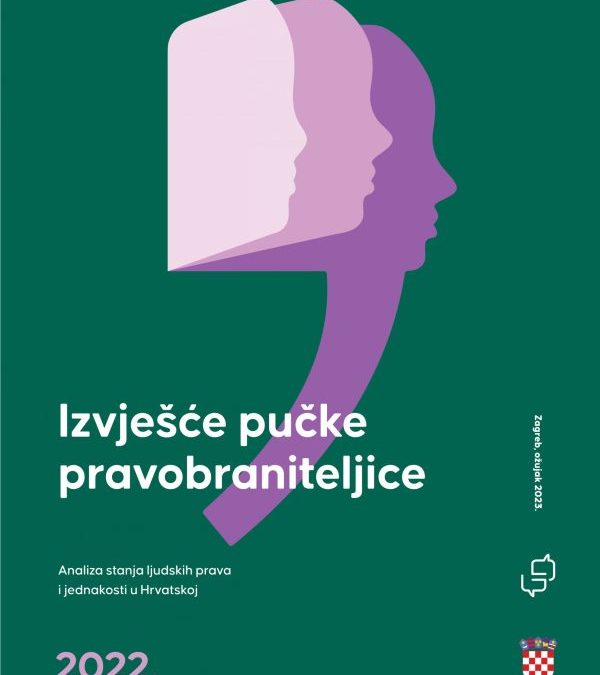At its session held on 18 October 2023 the Committee on Human and National Minority Rights of the Croatian Parliament unanimously voted in favor of the Ombudswoman’s Annual Report 2022. Parliamentary members of the Committee pointed out that the Report is comprehensive and well-argued, as well as that the analyses, data and the conclusions it contains are widely read and used.
The Committee also unanimously adopted the conclusion urging the Croatian Parliament to discuss the report in its plenary session by December 15 of this year.
Committee’s Chair Mr. Milorad Pupovac expressed his support for the work of the institution of the Ombudswoman by calling on the competent authorities to improve their cooperation with the Ombudswoman, mainly in terms of providing data and following-up on her recommendations. The same is in line with one of the six recommendations of the European Commission issued to the Republic of Croatia in EC’s Report on the Rule of Law for 2023 – to further improve the implementation of the recommendations and to respond more systematically to the Ombudswoman’s requests for information.
Presenting the Report, Ombudswoman Tena Šimonović Einwalter provided a brief overview of some of the institution’s activities in the areas of human rights protection and promotion undertaken in the course of 2022 and of the problems citizens encountered in exercising their rights.
These problems are presented in the Report through more than 60 topics and subtopics, as well as 170 recommendations that provide direction for their resolution. At the session, the Ombudswoman particularly emphasized the issues related to the impact of poverty on the exercise of human rights, the right to health, the consequences of the earthquakes, the right to good governance, migrations, the rights of national minorities, discrimination in work and employment, discrimination based on nationality, hate speech and hate crimes, problems present in the prison system, as well as trends related to the protection of whistleblowers.
When it comes to the institution’s activities in 2022, the bulk of them pertained to case-work. In 2022 we opened 4,534 new cases, which is an increase of 5.7% compared to 2021. When the cases opened in the previous years on which we are still working are added, the total of the cases we worked on in 2022 amounts to 6,099. Complaints related to healthcare (411 in total) make up the largest share in the total number in the newly received complaints in 2022.
The institution also intensively advocated for better public policies, by analyzing and commenting on as many as 36 draft bills, and later by participating in parliamentary committee sessions. This applies to discussions as part of legislative activities, but also to thematic sessions.
The Ombudswoman briefly presented her cooperation with other stakeholders as well as the national and the international activities that the institution carries out in response to the numerous invitations from various stakeholders to hold presentations and participate in
discussions, reflecting their recognition of the institution’s commitment to human rights and equality and of the quality of its work aimed at their protection and promotion.
In 2022, the Ombudswoman, her deputies and advisers held a series of training sessions on human rights and equality in several cities in Croatia. They were aimed at judicial and probation officers, employers, lawyers, civil servants, trade unions, corporate lawyers, and students. The bulk of the sessions dealt with the application of the Act on the Protection of the Persons Reporting Irregularities (so-called “whistleblowers”) and were aimed at confidential persons and judicial officials, mainly judges.
A significant proportion of our activities consisted of fieldwork in various areas of Croatia, for example with the citizens whose homes were destroyed in the earthquakes, in sites of environmental pollution, Roma settlements, and included visits to various places of detention performed by the officers of our National Preventive Mechanism for the prevention of torture and other cruel, inhuman or degrading treatment or punishment.
The Ombudswoman also spoke about the implementation of the new, fourth round of a large periodical survey on the perception and the occurrences of discrimination in Croatia, which our institution has been conducting since 2009. This is the largest and the only regular survey on discrimination in Croatia.
In her closing remarks the Ombudswoman invited the representatives of the state administration bodies present at the session to work on the further strengthening of the cooperation of their institutions and the Ombudswoman and called on the MPs to support the work of our institution, with the aim of achieving the effective protection of human rights in Croatia.


